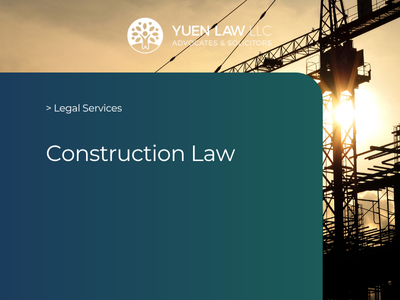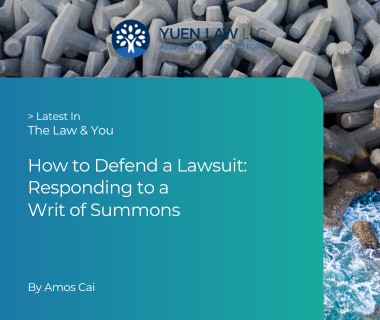
To make an adjudication application, the claimant is required to prepare and submit the following to the Singapore Mediation Centre (SMC):
- Adjudication application fee and deposit
- A written form (Form AA-1) stating the details of the claim
- A copy of the notice of intention to apply for adjudication
- A copy of the payment claim
- A copy of the payment response (if any)
- Relevant contract terms and conditions
- Other relevant information
The tables above illustrate the sequence and timeframe leading to the lodgement of an adjudication application. Once the stipulated maximum number of days for lodging the application lapses, the claimant will no longer be entitled to apply for adjudication under the SOP Act for work done under that particular payment claim. Therefore, it is crucial for parties to follow the time lines closely to ensure the validity and enforceability of payment claims.
How to file a Security of Payment Act Claim
The Security of Payment Act (SOP Act) facilitates payments for construction work done or for related goods and services supplied in a construction project.
People working within the building and construction industry are aware that the maintenance of a healthy cash-flow is of utmost importance, especially because it concerns the survival of contractors, sub-contractors and suppliers.
Many of these contractors and sub-contractors do not possess the economies of scale to withstand delayed payments while paying for their own sub-contractors or suppliers down the line for work done. Moreover, main contractors might be exposed to liability for substantial liquidated damages (typically calculated on a per day basis) as a result of delays in the completion of the project. In recognising the importance of this, as well as the difficulties faced by contractors in enforcing timely payments, the Building and Construction Security of Payments Act (SOP Act) was enacted in 1 April 2005 to facilitate smoother cash flow in the construction industry.
Security of Payment Act seeks to affirm parties’ entitlement to payment for work done pursuant to a construction contract. Beyond this, the Act also provides claimants with a binding enforcement mechanism to obtain payment for an ongoing or completed project – a process known as adjudication.
What is adjudication for building and construction matters?
The adjudication regime that Singapore Mediation Centre (“SMC”) administers is governed by the prevailing Building and Construction Industry Security of Payment Act, Building and Construction Industry Security of Payment Regulations and SMC Adjudication Rules.
Basically, adjudication is a quick, low-cost dispute resolution procedure for parties to determine the amount payable by the respondent (the party receiving the payment claim) under a particular payment claim.
In an adjudication proceeding, an adjudicator appointed is by the Singapore Mediation Centre (SMC) to determine the amount payable in a disputed payment claim. The adjudication process typically lasts around 21 days, provided that the adjudicator does not require an extension of time to issue their determination. This determination binding on both parties and contains the adjudicated amount, which is what the respondent has to pay within 7 days of receiving service of the determination and the claimant’s invoice. Although the respondent is still entitled to appeal and/or set aside the adjudication determination in Court, they may only do so on a rather specific grounds.
What kind of claims are eligible under the SOP Act?
Security of Payment Act only applies to construction and supply contracts.
It covers both progress and final payment claims issued by the contractor and/or sub-contractor under a construction contract. This means that claims can be made even if a project is still ongoing, regardless of whether the period to issue progress payments have been provided for under in the construction contract.
Process and Time Lines for Adjudication
It must be stressed that time is of the essence for making adjudication claims and the time limits applicable under the SOP Act are incredibly strict. There have been cases where parties’ documents were inadmissible because they were submitted late by mere minutes. You can refer to the Building and Construction Authority’s flowchart here.
Time Lines for Payment Response in Construction Contracts
| Description | Stipulated Days |
| Service of Payment claim | – |
| Timeframe for payment response | As per contractual terms (limited to a maximum of 21 days). In the absence of such terms, within 14 days from service of payment claim. |
| Dispute settlement period | 7 days |
|
Timeframe for lodging of Adjudication Application; Notice of Intention to Apply for Adjudication |
Within 7 days from end of dispute settlement period. |
Time Lines for Payment Response in Supply Contracts
| Description | Stipulated Days |
| Service of payment claim | – |
| Payment due date | As per contractual terms (limited to a maximum of 60 days). In the absence of such terms, within 30 days from service of invoice. |
|
Timeframe for lodging of Adjudication Application; Notice of Intention to Apply for Adjudication |
Within 7 days after payment due date. |





